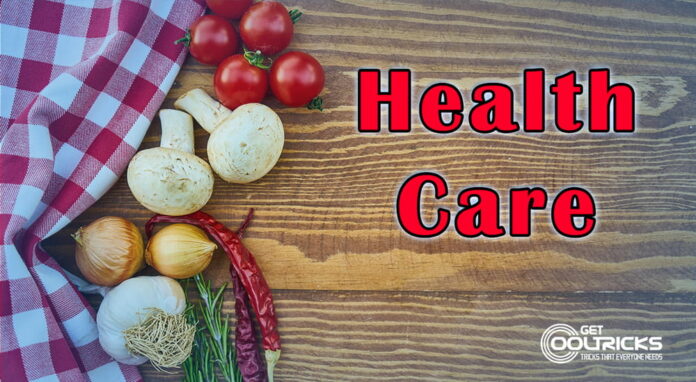Corn, also known as maize, is a cereal grain that is one of the most widely grown crops in the world. It is being cultivated in almost every part of the world and is a major staple food. Corn is a vegetable that comes as kernels or seeds on a cob which are covered by a husk layer.
Corn is a highly nutritious cereal grain and its health benefits are immense. Today, corn is found in every home in different varieties. It may be in form of sweet corn, flour corn, flint corn, or dent corn, and also it comes in many colours, viz, Yellow Corn, White Corn, Blue Corn, and Purple Corn which we will discuss in detail. Not only this, corn is widely used as fuel and fodder for animals. Corn is a versatile and important crop that has played a significant role in human history as well.
Types of Corn
There are five main categories of Corn found in the world.
1. Yellow Corn
This is the most common type of corn which is used for making cornmeal, corn flour, and other corn-based products. It is also used to make tortillas and chips. Yellow Corn is also used to make popcorn.
2. Blue Corn
This corn is native to the USA and has a deep blue or purple colour. It has a slightly sweet and nutty flavour and is used in making juice, jam, blue corn chips, and blue corn pancake mix.
3. Flint Corn
Flint corn, also called Indian corn, has a hard outer shell and is used for making cornmeal and corn flour. It comes in red, white, blue, black, and gold colours. Such colourful grain corn is!
4. Sweet Corn
Sweet corn is harvested when the kernels are young and sweet, and it must be eaten fresh, canned or frozen before the kernels become tough and starchy.
5. Dent Corn
This type of corn has a distinctive “dent” at the top of each kernel and is often used for animal feed. It is also used for making corn syrup, and manufactured foods like tortilla chips and grits.
Nutrition Facts about Corn
Corn is packed with fibre, vitamins, and minerals. It is also high in carbohydrates which are essential for the body. To give a fair idea, one serving of corn (about one cup, or 150 grams) contains approximately:
- 165 calories
- 38 grams of carbohydrates
- 4.5 grams of protein
- 2.5 grams of fat
- 3 grams of dietary fibre
- Vitamin C -16% of the Daily Value (Daily Value is the amount of nutrient/ vitamin required daily)
- Vitamin B1- 22% of the Daily Value
- Magnesium- 10% of the Daily Value
- Potassium- 9% of the Daily Value
In addition to these nutrients, corn also contains anti-oxidants, including lutein and zeaxanthin, which are important for eye health.
Health Benefits of Corn
1. Prevent Digestive Problems
The fibre in corn promotes healthy digestion and may prevent the body against gut issues. Corn may also protect against diverticular disease, which is characterized by inflammation of the digestive tract. Regular usage of corn is also good for bowel movements and minimize constipation problem.
2. Lower Cholesterol Levels
Studies have suggested that consuming corn may help lower cholesterol levels and reduce the risk of heart disease. The optimal combination of fatty acids in corn lowers LDL ( bad cholesterol levels) and increase HDL ( good cholesterol levels). As a result, one ends up reducing the risk of cardiovascular diseases by a huge margin.
3. Good for Eye Health
As mentioned above, Corn is rich in Vitamin C which is a strong antioxidant that protects body cells from damage. Also, the anti-oxidants can help protect against age-related vision problems, such as cataracts. To add more to it, eating yellow corn can provide the body with a ton of beta-carotene, which produces Vitamin A, and is extremely beneficial for good eyesight.
4. Prevents Anemia
Corn is rich in iron which helps the body to form red blood cells and haemoglobin, which is very important to prevent anaemia (Anemia is caused due to lack of iron in the body). Also, it helps to avoid exhaustion, fatigue, dizziness etc and keeps the body energized all day long.
5. Promote Human Growth
The good amounts of vitamin B1 (Thiamine) and vitamin B3(Niacin) in corn facilitate healthy growth of the body. It improves cognitive functions of the body and prevents dementia and dermatitis. Also, the folic acid present in corn is found to be good for pregnant women.
6. Helps in Gaining Weight
Corn contains a high amount of calories which can be helpful in gaining weight quickly. But, keep in mind that corn should be consumed in moderate amounts for best results.
7. Promoting Healthy Skin
Apart from its health benefits, corn can be useful for achieving glowing skin as well. It can be used to soothe skin irritation, rashes, and other skin problems. Also, the anti-oxidants in corn prove useful in slowing the ageing process and making the skin look youthful. Not only this, regular massage of corn oil enhances the skin texture as well.


